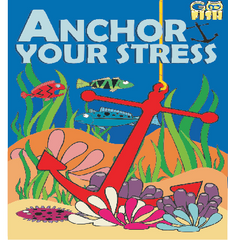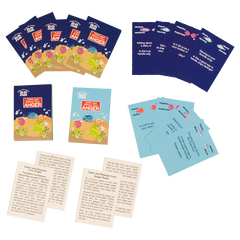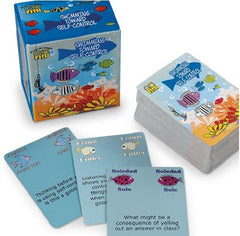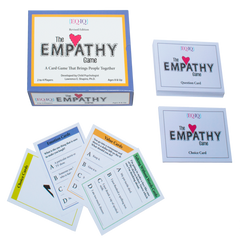Puzzled? How to Solve Problems by Picturing Solutions
Puzzled?
How to Solve Problems by Picturing Solutions
by Ned Engel, Ed.D., Ph.D., ABPP, Judy Iacovino, M.A., CAS, Beth Gamble, M.A., CAS, Kimberly Filoia, M.A., CAS, Maria Schmidt, M.A., CAS, and Angela Zizzamia, M.A., CAS, LMHC
As they work together to assemble jigsaw puzzles, players learn five problem-solving strategies: Reframe It; Do Something Different; Picture the Solution; Stop and Think; and Try Kindness. On each turn, a spinner determines which of these strategies players must use to solve thought-provoking problems posed on game cards. A good solution earns a puzzle piece that’s added to the work in progress.
This activity not only teaches problem solving but also fosters teamwork and communication. The game format encourages fluid interchange of thoughts, feelings, and concerns, while the communal task of assembling a puzzle promotes trust and cooperation. Four eye-catching puzzles are included. Recommended for up to 6 players.
How to Solve Problems by Picturing Solutions
by Ned Engel, Ed.D., Ph.D., ABPP, Judy Iacovino, M.A., CAS, Beth Gamble, M.A., CAS, Kimberly Filoia, M.A., CAS, Maria Schmidt, M.A., CAS, and Angela Zizzamia, M.A., CAS, LMHC
As they work together to assemble jigsaw puzzles, players learn five problem-solving strategies: Reframe It; Do Something Different; Picture the Solution; Stop and Think; and Try Kindness. On each turn, a spinner determines which of these strategies players must use to solve thought-provoking problems posed on game cards. A good solution earns a puzzle piece that’s added to the work in progress.
This activity not only teaches problem solving but also fosters teamwork and communication. The game format encourages fluid interchange of thoughts, feelings, and concerns, while the communal task of assembling a puzzle promotes trust and cooperation. Four eye-catching puzzles are included. Recommended for up to 6 players.






